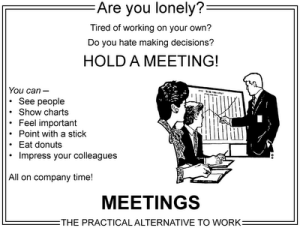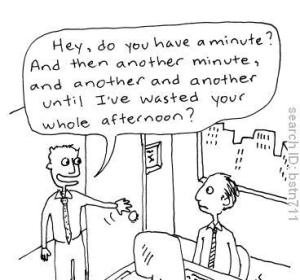One of the most common questions we hear from religious believers is, “How can you prove there isn’t a god?”
It’s a question that defies logical argument, of course, as it falls upon the person making the claim to provide evidence for it. I can simply say, “I have listened to your claim and don’t believe it”, and I have no further work to do.
To assist those who might wish to convince me and others of the existence of a mysterious, invisible yet all-seeing skyman, I have devised a simple 3-level ladder which explains the type of evidence I, and hopefully other thinking people, will always require to support different types of claims.
LEVEL 1 CLAIMS
These are everyday, mundane claims made by a trusted friend or associate, and as such require no corroboration. The difference in consequences from believing it or not can be slight, and your life is barely changed either way. Therefore, there is little motivation to seek further evidence beyond taking the person at their word.
Here are some examples of a level 1 claim:
- A friend tells you she is 2 months pregnant. Most people wouldn’t immediately ask to see the test results, but would be content to wait and see visual progress followed, hopefully, by a successful birth. It’s a horrible thing to lie about, and you never caught her making stuff up before, so unspoken trust is there.
- A work colleague says he has booked a holiday to the Seychelles. You take him at his word, as it’s entirely possible he could have done so, and he has no reason to lie. You don’t need to demand to see the tickets, although he could be making the whole thing up. If he is, it’s his problem, not yours.
- Your partner calls to say you have run out of milk and asks you to get some on the way home. It’s unlikely you’d go home first to check for yourself, as you trust their judgement on such matters. In any case, if they’re mistaken, the consequences of having too much milk at home are minimal. So, you seek no further evidence of their claim, and purchase the milk.
LEVEL 2 CLAIMS
These are the types of claim which might make you go, “really?”, or ask further questions before you’re comfortable with believing it. A level 2 claim could, but doesn’t need to, concern a matter which affects you directly, and will generally be provable, one way or the other.
Practical jokes and spoofs are often based around level 2 claims, in the hope that the recipient of the claim will believe it without checking further – what we call “falling for it”. Satisfactory evidence is, however, freely and easily available to you and anybody else who wants to obtain it.
Here are some examples of a level 2 claim:
- A work colleague tells you the boss is laying off staff and you’re next. Concerned, you go and ask other workmates what they know. Subject to the consensus of replies, you may contact your HR department and get the official line. This is an important issue, so you are right to gather evidence before believing your colleague’s claim.
- Your partner tells you she has found a lump in her neck and believes it’s cancer. You instruct her to go to the doctor, and go along with her. The ensuing medical diagnosis and written evidence will prove her claim one way or the other. Again, it’s a serious issue, and needs immediate investigation. You cannot believe her claim based on her instincts, and to do so would be irresponsible, given the ready availability of reliable evidence and the need for urgent treatment if she’s proven right.
- Your friend calls you and tells you there’s a tsunami warning in place, and he’s heard your house is in the danger zone. You need to evacuate your family immediately. It’s possible he’s dead right, but you need to check for yourself. You switch on the TV, go online and call a few other people to find out what they know. Based on a consensus of readily available information, you make a decision whether to go or stay put after establishing the validity of your friend’s original claim.
LEVEL 3 CLAIMS
Claims at this level are distinguished from the two lower levels by the lack of compelling evidence to support them. Not only is evidence in short supply to you, but no-one else is able to find any either. Bizarrely, level 3 claims are usually the most grandiose of all, therefore requiring standards of evidence way in excess of that required to support more mundane claims.
There are many millions of people making level 3 claims on a daily basis, and there has been for centuries past. Contrary to what you might expect, most go completely unchallenged, with global networks of people being prepared to believe the most far-fetched level 3 claims without a shred of evidence.
Here are some examples of a level 3 claim:
- You meet a guy in a pub who says his grandma is 117 years old and flies to work on a winged badger every day. He appears sane, so you ask him for evidence, and he produces a picture on his smartphone, which shows an old woman straddling a woodland creature in the sky above a row of houses. You can’t accept what is almost certainly a faked image, so you ask to meet her in person. He declines, but offers to email you a copy of what you just saw on his phone, and insists that it is real, before slinking off to bother someone else. You reflect on how you could have believed his unusual claim, if only he had taken you to see his ancient airborne granny in action.
- A student on the TV is being interviewed, passionately claiming that he was abducted by aliens from his bed last night and returned naked to his front garden at 6 am, from where he was arrested. He makes his case tearfully from his bed in the mental hospital where he now resides. He produces no evidence other than his verbal testimony, and is unable to provide any corroboration to his fantastic story now or at any time in the future. His friends pity him and the world ridicules him.
- You hear a priest on the radio claiming that everlasting life is available to you after death if only you believe in an entity called god which no-one has ever seen or heard. God will forgive you any sins you might have committed, because his son was killed some millennia ago and came back to life before disappearing into the clouds. The priest provides no evidence for any of this, but claims he knows it to be true and refers to the availability of a book which he says backs up his story. Far from being ridiculed for making what is clearly a level 3 claim on a public broadcasting network, the priest is given a daily platform to repeat his nonsensical story. Oddly, he’s never been asked to make god available for an interview, or provide god’s email address or other contact details so he can be quizzed by the rest of us.
HOW TO BELIEVE, OR NOT
There is clearly a different approach to believing each of the 3 levels of claims. You would be churlish to call your partner a liar when she tells you there’s no milk left, and asking for further evidence is both unnecessary and unhelpful.
At level 2, no-one would criticise you for seeking evidence to support a claim that you were about to be fired, for instance, and it’s quite easy for you to find out for sure one way or the other.
Level 3 claims represent a different conundrum, given that your only choices are to believe the person making the claim, or to not believe, based on a lack of evidence.
The latter position, that of not believing, perfectly describes atheism. It’s not a belief system, so when a religious person tells you that you can believe what you want, and they will believe what they want, they’re missing the point.
The rational, logical, intelligent stance when faced with a level 3 claim is simply not to believe any of it.











